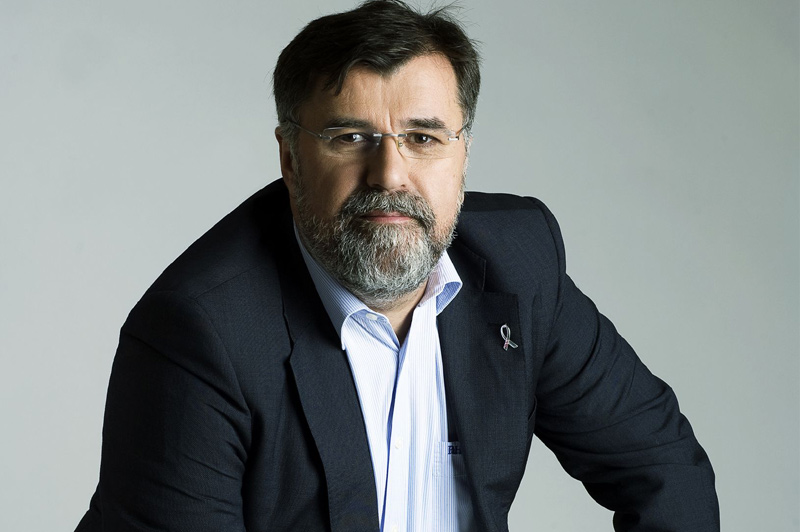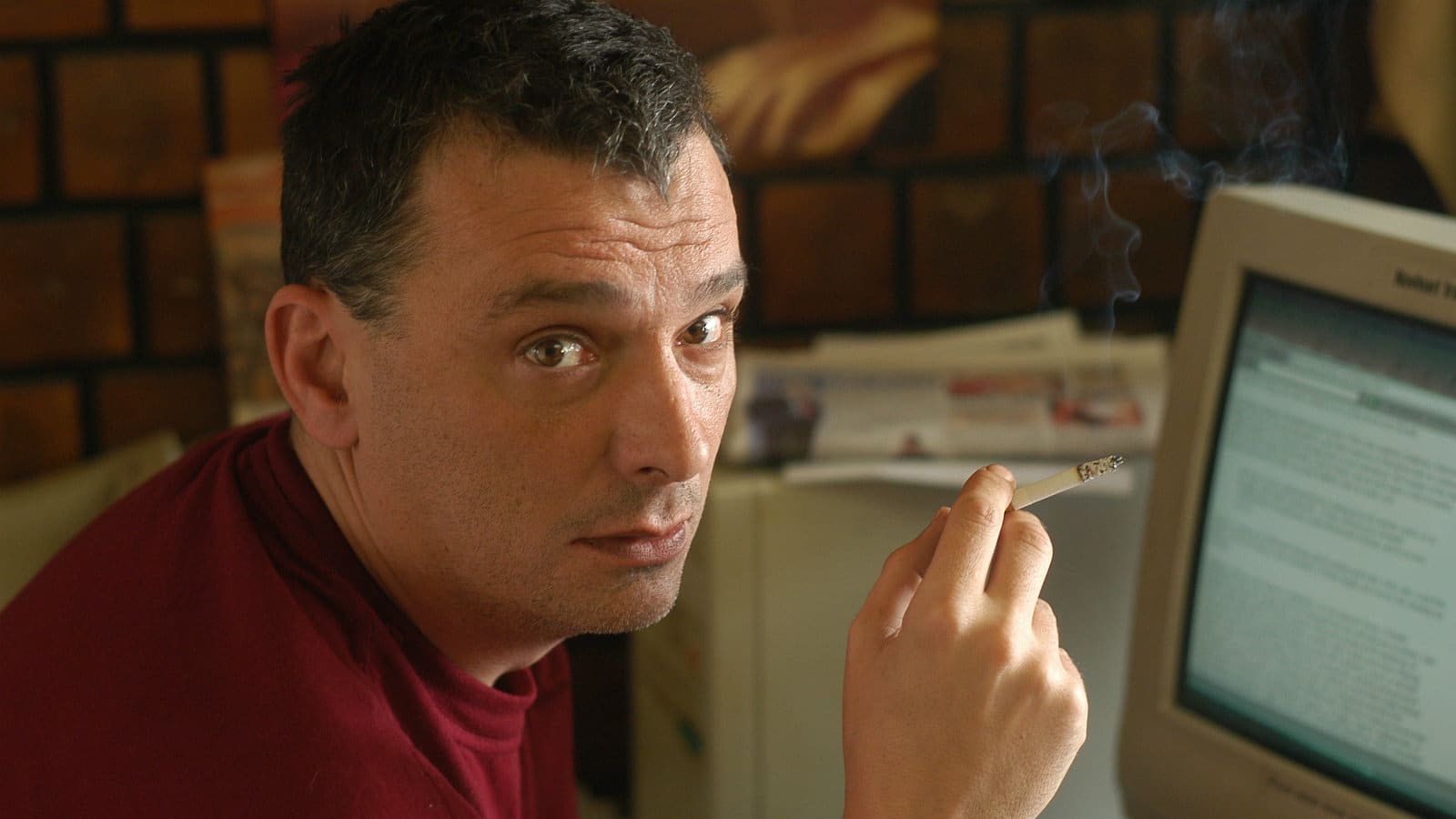This article, republished by IPI, was written by Serbian journalist and IPI World Press Freedom Hero Veran Matić, chair of Serbia’s Commission for the Investigation of Murders of Journalists
It’s Easter again, a holiday that I associate more with the murder of Slavko Ćuruvija than with a family holiday. Eight years after Ćuruvija‘s murder in 1999, the journalist Dejan Anastasijević was a guest on the show “Kažiprst” on TV B92. He was talking about the unsolved murder of Ćuruvija, but also about the crimes of the paramilitary formation “Scorpions”.
On 14 April 2007, at 2:45 a.m, an assassination attempt was made against Anastasijević and his family. Judging by the enthusiasm of the politicians who in the following days condemned this attempted murder, demanding immediate identification and prosecution of the perpetrators, it seemed as if it was only a matter of days and hours before this would happen. However, this did not happen. Not at all.
At the recent conclusion of the appeal trial for the murder of journalist Slavko Ćuruvija, the defence attorney for the accused Radomir Marković claimed in his closing words that I personally had formulated the indictment against Marković and others, in order to diminish the NATO bombing of Serbia and thus protect those responsible for that crime.
In the courtroom, in those few hours, one could feel the polarisation, between “patriots” – them, and “traitors” – us. Those who, they claimed did their job honourably, pursuing those of us who were allegedly “meeting with foreign spies, receiving foreign money, undermining the country”. Those who only committed crimes as a patriotic duty, and those of us who, according to them, had no understanding for their “patriotic” evil deeds. Those who, they claimed, only deviated slightly from their professional rules, killing political opponents, and those of us who think that these are horrific crimes…
It became clear why it had been so difficult to complete the investigation into the murder of Slavko Ćuruvija. For the same reasons why the assassins and those who ordered the murder of Dejan Anastasijević have never been found.
The system is defended by the network of the State Security Service, which has remained very active, integrated into all state and parallel state institutions, in the criminal world and in the political parties.
Since there was no progress in the investigation, Dejan himself came out with his own investigation and the article “Who put the bombs on my window?” Reading this text, I decided to ask the police how the investigation was really conducted. The file on this failed assassination is kept as the “Hadžija” case.
In his appearance on t“Kažiprst” talk-show on Radio B92 with Danica Vučenić, Dejan spoke about the fact that there were no new details on this case. He also spoke about various other topics, such as the minimum punishments given to members of the Scorpion paramilitary group, and about the anniversary of the murder of Slavko Ćuruvija.
Looking into the investigation, I had the same feeling as in the cases of journalists Milan Pantić and Slavko Ćuruvija, that the investigation had been conducted without any enthusiasm to really solve the case. In the files are many well-described characters, but practically they were there only as a necessity to check off yet another part of the investigation.
In this case as well, as in the case of Milan Pantić, the Minister of Police Dragan Jočić glorified the investigation and trivialised the case. In the case of the murder of Milan Pantić, he stated that the journalist was not supposed to have been killed, but only intimidated. However, there is no evidence for such a claim anywhere in the investigation files. In the case of Dejan Anastasijević, Jočić talks about the 600 witnesses examined, but this only covers up the failure of the investigation, ie. the lack of determination to solve the case.
Another minister, Dragan Kojadinović, claimed that the problem was that the journalist lived on the ground floor, so that it was easy for the two bombs to be on his windowsill (this was also said on Antonela Riha’s TV show Poligraf).
None of the main suspects from Dejan’s investigation were interrogated: The paramilitary leader and convicted war criminal Vojislav Šešelj, his wife and politician Jadranka Šešelj. The possible link to Dejan Anastasijević’s testimony in the ICTY was not considered, and Dejan’s testimony was included, which even Dejan himself did not know about, in the case against the former head of the State Security Service, Jovica Stanišić.
The DNA that was collected at the scene of the attempted assassination, was later used to eliminate those who were taken into custody, they were also eliminated through the inevitable polygraph testing.
The persons who in those days called the “Vreme” editorial office and asked for Dejan, were first identified, as well as the person who called Dejan’s sister Duška (who also worked in “Vreme”) on her private number, shouting “Go away, go away…” and who claimed that he hadn’t called Duška, but rather the editorial office of the TV entertainment show “Žikina Šarenica”, and another person who had called to ask Dejan if he came from one of the Anastasijević families.
Then there were various reports that an unidentified person was planning to throw a bomb at someone’s car, followed by reports saying that no criminal items were found after locations of implicated people had been searched…
On that day, there had been a fight in the area among a large group of youths, so they were also questioned. Some people boasted that they had thrown a bomb at some journalist, so they were interrogated, and during searches, some explosives and detonators were found. Charges were filed, but they were eliminated as possible perpetrators.
Since Dejan had mentioned the paramilitary group Scorpions, all who could be reached were interviewed, but they did not match the DNA profile, and some of them also passed the polygraph test. Someone sent an anonymous letter accusing one person of planting the bomb, but it was determined that there was no DNA match and he passed the polygraph.
There were several cases in which individuals boasted that they were the perpetrators, but it turned out that they had nothing to do with it. One boasted to his wife that he had planted the bomb and that for this he would receive money to repay his debts.
Persons who had previously used bombs as a means of confrontation were also detained. Some of them reported that someone they knew had a large stash of weapons and the police confiscated these weapons and filed charges, but in all cases, it was determined that they had nothing to do with the assassination attempt.
When Dejan’s article “Who put the bombs on my window?” was published, he was interviewed and it was confirmed that he was revolted by the statement of Police Minister Dragan Jočić that it was difficult to solve his case because the motive for the attack could not be determined.
Dejan explicitly explained his suspicions about “Šešelj’s list”, that Šešelj gave to his wife Jadranka, who then forwarded it to his confidant Petar Panić, whose name was not mentioned in Dejan’s article. As a motive, Dejan stated that people from this list could be uncomfortable witnesses in the proceedings against Šešelj. On this list, in addition to Dejan, was journalist Jovan Dulović, who also testified in The ICTY.
In the article, Dejan also stated that immediately before the assassination attempt, he had received information that, without asking and without his consent, the war crimes prosecution in the ICTY had put him on the list of witnesses in the case against Jovica Stanišić, and that Stanišić’s defence had been given access to this list. This, he said, could be a possible motive for the attack on him, because most of the people who were on the list, according to his knowledge, died under strange circumstances or gave up testifying.
Another questioning took place in the “Padinska Skela” prison with Petar Panić, who was serving a sentence for causing serious bodily harm. It was established that he was not near the place of the assassination and also the DNA did not match. Apart from the conversation with Petar Panić, and the possible link to the trial of Jovica Stanišić, there were no further investigations into “Šešelj’s list”.
According to reports, the investigation into the possible participation of Petar Panić had been done superficially. As a reminder, his violent streak was confirmed when the lawyer Nikola Barović (a lawyer for Branka Prpa in the Slavko Ćuruvija murder trial) was severely beaten after his appearance on BK Television. Panić was convicted as the perpetrator, but even though he was indicted as the instigator, Šeselj was not convicted because in the meantime he had been sent to the ICTY. Talking about this event Šešelj would cynically comment that the lawyer “had slipped on a banana peel”.
The assassination attempt against Dejan Anastasijević is the worst attack on a journalist in Serbia after the murders of Milan Pantić and Slavko Ćuruvija and the unexplained death of Dada Vujasinović.
This happened after the Milošević period, during the time of the democratic government. President Boris Tadić visited the “Vreme” newsroom. Dejan was satisfied with the communication with the police director Milorad Veljović.
However, when you look at the list of actions taken in the investigation over the period of ten years since the assassination attempt, you can see that the expressed political will had no effect on the actual work on the ground. I believe that this was for the same reason as in the case of Slavko Ćuruvija.
It would be invaluable to examine all possibilities to continue the investigation into this assassination attempt, the attempted murder of Dejan and his family. Additional efforts should be made to conduct all interviews and to follow up on all investigative activities that have not been done so far.
On International Press Freedom Day, May 3, the most important awards for journalists, those for investigative journalism will be awarded in the name of Dejan Anastasijević.
The minimum that needs to be done on the 16th anniversary of this assassination attempt is to demonstrate the will and intention to fully investigate it.

